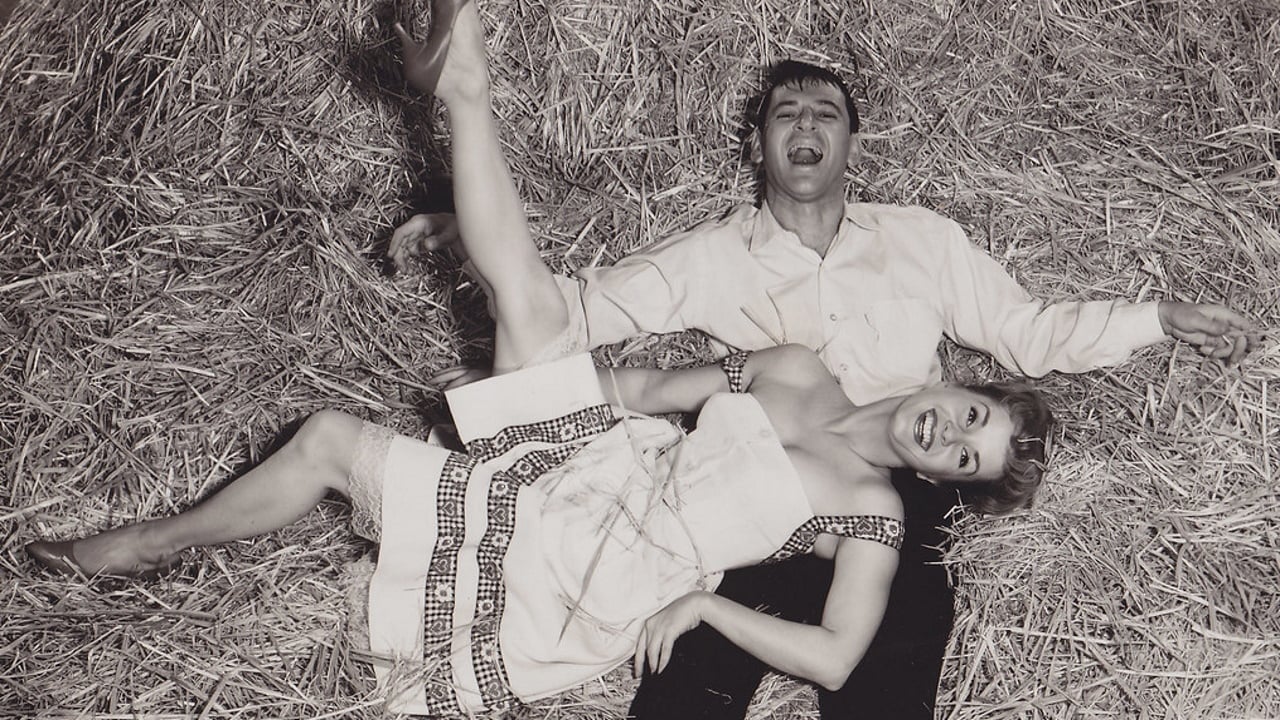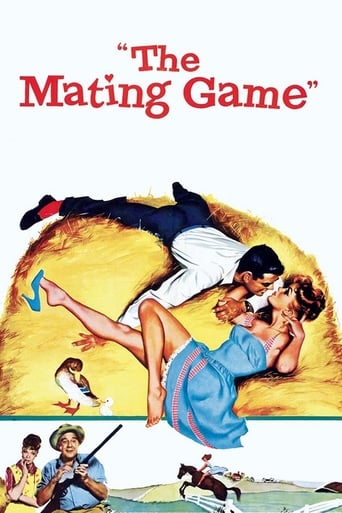

Ma & Pop Larkins daughter, Mariette (Debbie Reynolds) is now of age and can marry. But where oh where will they find a top of the tree branch man worthy of her? Cue Tony Curtis as Lorenzo and IRS agent visiting to find out why the Larkins have paid no income tax. What follows are several romps in the hay and a story that will leave you laughing. Not so sure the story would work in current times. But take it for what it is and you will enjoy.
... View MoreRipping off the plot twist from that famous George M. Kaufman play, this sitcom like film is as inconsequential and unbelievable as comedies go. IRS employee Tony Randall shows up at Paul Douglas's farm, realizes that they have never paid taxes, and is manipulated into staying, all because Douglas and his wife (Una Merkel) believe that there's a possibility of romance between him and their daughter (Debbie Reynolds). Douglas, trying to explain their philosophy of trade, can't understand that Randall is intent on giving them a huge bill. This just gets sillier as it goes on, with Randall getting drunk, staying the night, and finding himself further involved in the life of this hayseed family.Even sprinkled with modern sensibilities of the late 1950's, thus is very mid '30s in mood and style. A split screen with his boss (Fred Clark) is missing the split, making it appear that they were right next to each other when the scene was filmed. While everybody is charming enough, the premise to set up romance and other conflicts is simply absurd. Ma and Pa Kettle were far more worldly than the more well off Douglas family. Randall, not your typical leading man, is full of pep, really going all out in a very funny drunk scene. This works simply for moments, and if if wasn't for the fantastic cast, gorgeous country settings and a few genuine laughs, I would rank this as 3/10.
... View MoreIn the 1950s and 1960s, Americans especially were more concerned about taxes than at any other time. At least, that's what Hollywood might lead one to believe, based on the number of films it turned out in those years with tax-related themes. Of course, we should be concerned about taxes. But, comedies such as "The Mating Game" helped put taxes into perspective. Toss in doses of romance, good-naturedness, neighborliness, friendships, and resentment and greedy wealth, and one has the makings of an entertaining and funny movie. This film is an American version of the Larkin family. It's based on a 1958 short novel, "The Darling Buds of May," by British author H.E. (Herbert) Bates. In the book, the Larkins reside in rural Kent, the southeastern most county in England. Canterbury is located there. Yorkshire Television produced a TV series that ran from 1991 through 1993 in England under the original name of the book. This American adaptation made significant changes, mostly to accommodate for the culture differences. So, the setting here is in rural western Maryland. Apparently it was all shot in the MGM studios in California. All the cast are excellent in this farcical story. Another reviewer thought Tony Randall was miscast as Lorenzo Charlton, but I agree with others who saw him as the perfect reticent and reluctant object of romance for Debbie Reynolds' Mariette Larkin. The two ogres in this film are played by Fred Clark (as Oliver Kelsey) and Philip Ober (as Wendell Burnshaw). They were a couple of the best character actor villains in those days. The chasing scenes involving Mariette are a lot of fun, and the exchanges with Lorenzo over taxes are very funny. But two actors stand out – Paul Douglas and Una Merkel as Pop and Ma Larkin. They steal every scene in which they appear. This was indeed a fine performance by Douglas, who often played tough guy roles or serious parts in films. It was his last film. Douglas died a few months after this film came out. He suffered a heart attack at age 52. People who want all the details of movies to make sense or to be realistic may not enjoy this film. But those who love comedy will get many smiles and laughs from "The Mating Game."
... View MoreRambunctious Debbie Reynolds (as Mariette Larkin) gets the urge to mate with tax collector Tony Randall (as Lorenzo Charlton). And, he wants to mate with her! - How? - Well, farming father Paul Douglas (as Sidney "Pa" Larkin) doesn't pay taxes; he trades things, and raises piglets. Maryland "Ma" Una Merkel raises children, and bakes blueberry pies. Ms. Reynolds rides a pig into wealthy neighbor Philip Ober (as Wendell Burnshaw)'s mansion, prompting Mr. Ober to summon Mr. Randall from the IRS (Internal Revenue Service). Will Randall collect taxes, Reynolds, or both? Reynolds and Randall are not a very convincing romantic couple. They should have considered casting, perhaps, Sandra Dee and Troy Donahue. Randall dances a drunken melody of "Frère Jacques" / "I've Got You Under My Skin". This is followed by an impossibly implausible (even for this type of film) implied sex scene, with Reynolds. Director George Marshall gives it an appropriate feature-length "sit-com" treatment; but, the material makes the increasing slapstick more painful than funny (witness the "barn" fight scene). The supporting cast, with its old pros and fresh faces, is a treasure trove, however.***** The Mating Game (4/29/59) George Marshall ~ Debbie Reynolds, Tony Randall, Paul Douglas, Una Merkel
... View More